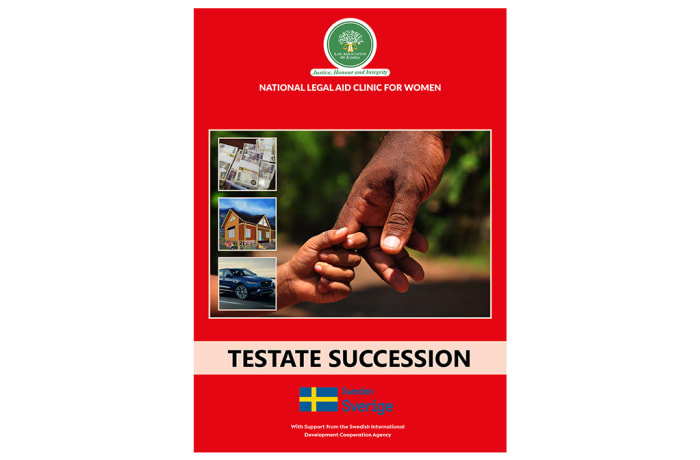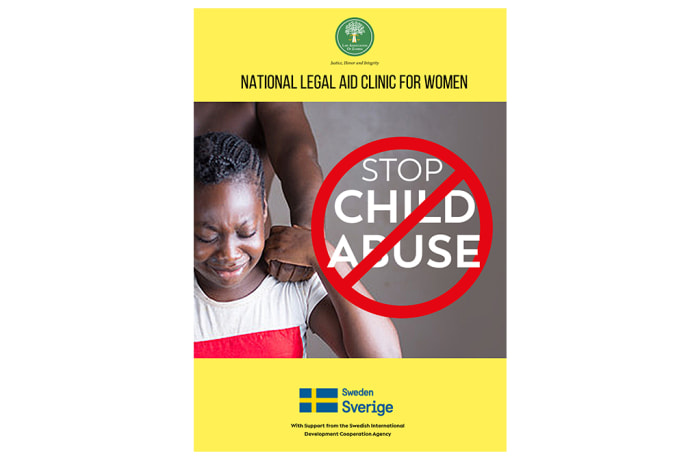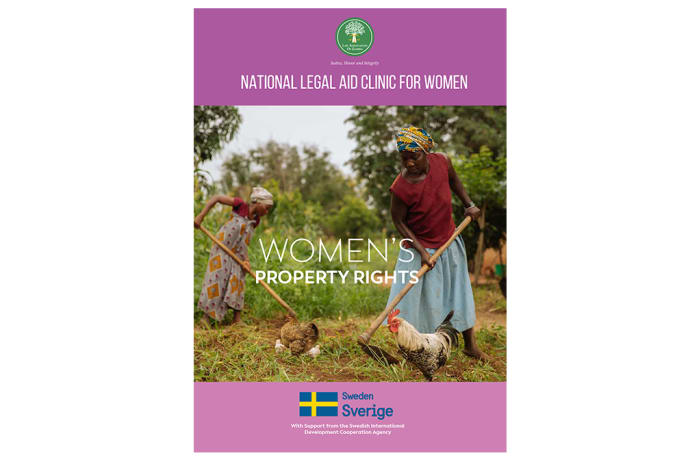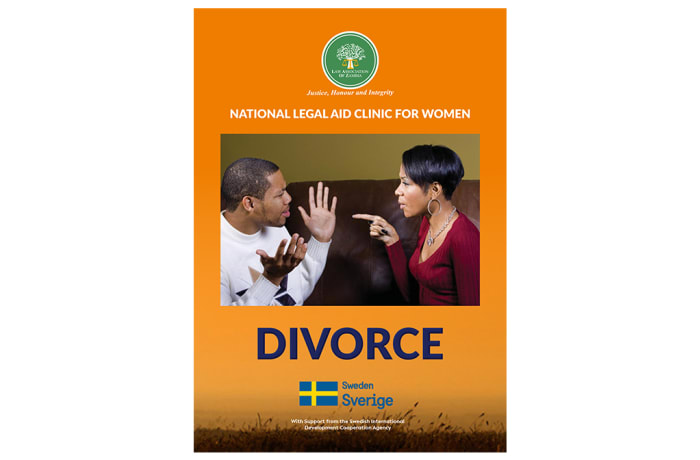
Testate Succession Booklet
Further information
WHAT IS A WILL?
A Will states what will happen to your assets after death. Assets include property, personal things, money and children. If you do not leave a Will, the Government will divide your property, in a way you may not have wished.
WHY SHOULD I HAVE A WILL?
People spend a lot of money to acquire their assets or property. It is therefore, important that they also decide how their property will be divided after their death. Writing a Will is the only way of making sure that your property is handled according to your wishes, after death.
WHAT IMPORTANT THINGS SHOULD I KNOW WHEN WRITING MY WILL?
1. Age
You must be at least 18 years or above to write a Will. A person who is below 18years is regarded as a child and cannot therefore, write a Will.
2. Your state of Mind
You should not be suffering from any disease of the mind or disease which affects your mind. If at the time of writing your Will your mind is not alright, your Will can be put aside by the Court and when this happens, it will be as though you did not write a Will. The law will then decide how your property will be divided.
3. You do not need to be educated or be able to read and write If you are a person who is blind or for some reason, you cannot read or write, you too can write a Will. You can ask someone you trust to write the Will for you. The person who writes the Will for you should then be able to read it back to you in the presence of two witnesses who can confirm what the person has written. Instead of putting your signature on the Will, you can put your thumb print. The person who has written your Will on your behalf should also be able to sign together with the two witnesses.
4. Beneciaries
These are the people you want to leave your property with. You can choose whoever you want to leave your property with. When deciding who you want to take over your property after your death, it is important to list the names of all your children and spouse because if you do not provide for them, the Court can make changes to your Will to provide for them. If you have young children, you can also mention the name of the person you want to look after your children. This person is called a Guardian. A Guardian should be someone you know and trust can look after your children.
5. Executor
You should choose the person who is going to divide your property after death. This person will be responsible not only for putting all your assets together but will also be responsible for paying any bills or taxes which will be required after your death. This person is called an Executor. The Executor will also be responsible for taking any court cases to Court on your behalf. It is also important to appoint another person in case the person you appointed as Executor refuses or is not willing to do the work. The person you appoint as Executor must be at least 21 years old or older. The person you appoint as Executor should not be suffering from a disease of the mind. This is important because the person will be expected to make decisions and must know what they are doing, which is not the case with a person who has a disease of the mind. The person must not be penniless of broke. If you appoint a person
who is broke, chances are that the person will misuse or waste the property.
Learn more by downloading a pdf version of this booklet. Copy and paste this link into your browser:
https://res.cloudinary.com/dhsjpmqz9/image/upload/v1685362529/7._TESTATE_SUCCESSION_fjvsfa.pdf









